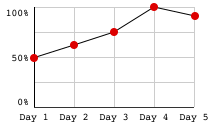Household Production & Underground Activity
Household Production: activities in the household such as taking care of children, cleaning the house, gardening, cutting grass, daily laundry in the house, are all examples of household production.
These activities are not “traded” in the market, so they are NOT included in the GDP.
Since household production is not included in the GDP, two things happen:
- GDP underestimates total production
- Growth rate of GDP overestimates growth of total production.
Underground Activity: activity which is part of the economy, but is hidden from government due to taxes, regulations, or illegality of the good.
Examples: paying workers below minimum wage, illegal drugs, paying cash to workers to avoid income tax.
Since it is hidden from the government and is hard to measure, we do NOT include it in the GDP.
Life Expectancy & Leisure Time
Life Expectancy: Having a good health and life does not directly show up in real GDP.
But, they do relate to one another.
However, there are still severe diseases, AIDS, and overuse of drugs that takes the lives of others which lowers life expectancy. If you take those negative influences into account, then we see that Real GDP overestimates the growth in the standard of living.
Leisure Time: Leisure time is very valuable economic good because it adds to the standard of living.
However, since its value differs from person to person, it is immeasurable. Thus, it cannot be included as part of GDP.
Note: This is different from working time, because working time gives wages that are part of GDP.
Environment & Politics
Environmental Quality: Most firms that produce goods and services can directly negatively affect the environment.
Example: Pollution to the air, forest clearing, overfishing.
These are negative parts of GDP are NOT included.
Note: Resources or equipment that protects the environment are part of GDP.
Political Freedom: Generally, we would look at GDP per person to see which country is better off.
However, it is inaccurate because it also depends on each country’s political freedom.
Example: China has rapid GDP growth, but have limited political freedom. Poland has a moderate growth in real GDP but has a democratic political system. Poland’s citizens are also permitted to do a lot of things that China’s citizens cannot. Which country is better off?
In conclusion, political freedom is very valuable, but it is immeasurable. So it is not included in the GDP.






